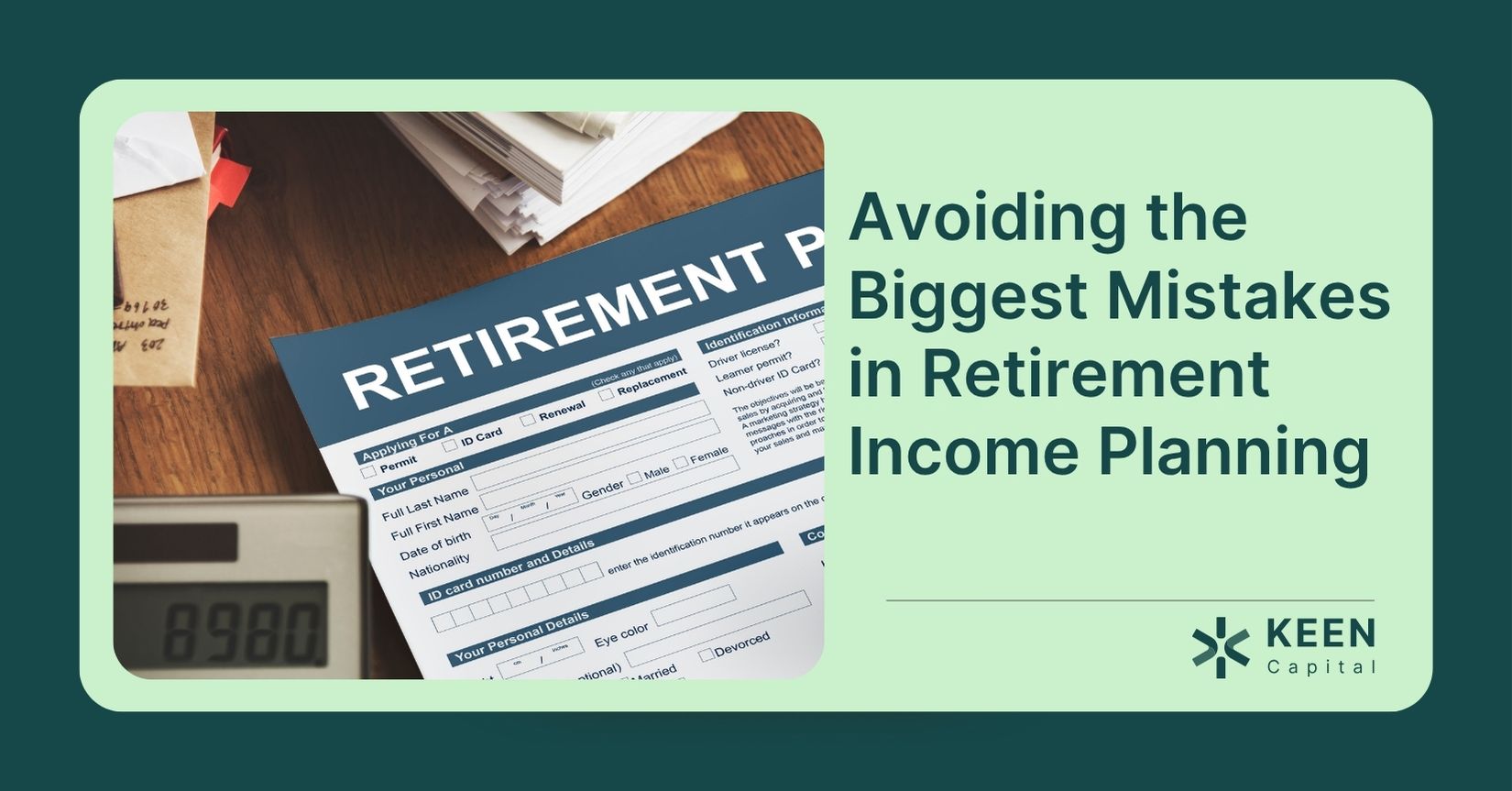You’ve probably heard the saying, “hope is not a strategy.” When it comes to managing wealth, that couldn’t be truer. You want someone who gets it—an advisor who isn’t just looking at today’s market trends but is thinking ahead, and making sure your investments, tax strategy, and estate planning all work together toward your long-term goals.
One thing most people don’t consider? How your advisor gets paid directly affects the advice you receive.
If an advisor earns commissions from selling certain funds or insurance products, you have to wonder: are they recommending this because it’s right for you or because it benefits them?
That’s why many high-net-worth investors prefer fee-only investment advisors—professionals who work for you, not a brokerage firm or insurance company. They don’t earn commissions or referral fees. Their job is to provide strategy, not sell products.
But like anything, this approach has its advantages and drawbacks. If you’re managing a significant portfolio, understanding how fee-only advisors work (and whether they’re the right fit for your situation) is key.
Let’s break down the differences.
No Sales Pitches, Just Advice
A fee-only advisor isn’t trying to sell you mutual funds, annuities, or insurance products because they don’t make commissions from them. Their only job is to give you advice on growing, protecting, and structuring your wealth effectively.
This means that if they tell you to shift investments, set up a family trust, or move assets into a tax-advantaged account, it’s because they believe it’s the right move for you—not because they get a payout for recommending it.
If you’ve ever sat through a financial advisor’s “free consultation” only to realize they were pushing specific funds or life insurance policies, you know exactly why this matters. Fee-only advisors work differently.
They Have to Put You First – Legally
Most fee-only advisors operate as fiduciaries, which means they’re legally required to act in your best interest. That might sound like a given, but in the financial world, it’s not.
Many traditional financial advisors work under a suitability standard, which means they can recommend investments that are merely “suitable” for you—even if they come with high fees or big commissions.
A fiduciary, on the other hand, is held to a higher standard. They have to put your needs first, which means their recommendations should be based on what benefits you, not what makes them the most money.
But it’s important to note that not all fee-only advisors are fiduciaries all the time. Some firms operate under a mix of fiduciary and non-fiduciary roles depending on the services they provide.
If you want a true fiduciary advisor, look for someone registered as a Registered Investment Advisor (RIA)—they’re required to act in your best interest at all times.
You Always Know What You’re Paying
With a fee-only advisor, there are no surprises when it comes to costs. Their fees are laid out upfront, and you’re paying them directly—either as a percentage of your assets under management (AUM), a flat annual fee, or an hourly rate.
For most investors, AUM fees are the most common.
If an advisor charges 1% of the assets they manage, that means if you have a $5 million portfolio, you’re paying them $50,000 per year. But as your portfolio grows, so do your fees—which is why some high-net-worth investors prefer flat fees. If your assets are substantial, negotiating a flat rate or a tiered fee structure could save you a significant amount over time.
This is one of the biggest advantages of working with a fee-only advisor—you’re paying for advice, not transactions.
But it’s also a reason to pay attention to the cost structure. If an advisor charges a percentage of AUM, but your investments don’t require frequent hands-on management, you may be overpaying for services you don’t need.
A Bigger Picture Approach
Investing is just one part of wealth management. A good fee-only advisor looks at the full financial picture—tax strategies, estate planning, business succession, charitable giving, risk management, and more.
For high-net-worth investors, this is important. Tax efficiency can make or break long-term wealth preservation. If you’re donating to charity, for example, an advisor might help you structure a donor-advised fund instead of giving cash outright, allowing you to take an immediate tax deduction while controlling how funds are distributed over time.
Or, if you’re thinking about passing wealth to the next generation, they’ll work with estate attorneys to structure trusts in a way that minimizes estate taxes and keeps assets protected.
Fee-only investment advisors shine in this kind of holistic planning because they don’t have a vested interest in selling financial products. They’re focused on strategy, not sales.
Long-Term Partnership, Not a One-Time Transaction
One of the reasons many investors stick with fee-only advisors for the long haul is that their success is tied to your success.
Unlike commission-based advisors, who make money every time they sell you something, a fee-only advisor’s earnings grow only if your portfolio does (assuming they charge AUM fees).
This creates an incentive for them to build long-term relationships with clients, offering consistent, ongoing advice instead of just making a sale and moving on. For families managing generational wealth, this can be especially important—you want someone who understands the nuances of your financial history and long-term objectives, not someone focused on short-term gains.
What to Watch Out For
While fee-only advisors offer transparency and objectivity, they’re not always the best fit for every investor.
Here are a few things to keep in mind:
- No Advisor Is Free of Conflicts – Every financial advisor operates with some level of conflict of interest – it’s how the industry works. For example, an advisor who charges a percentage of assets under management (AUM) may be more inclined to recommend investing extra cash rather than paying off debt, even if the latter could be better.
The key isn’t to find an advisor with “no conflicts” (because that doesn’t exist), but to work with someone you trust who’s transparent and committed to putting your goals first.
A 1% AUM fee may not seem like much, but on a portfolio worth tens of millions, that can translate into hundreds of thousands of dollars each year. That’s why some investors negotiate flat fees or bring in multiple advisors for specialized expertise.
At the same time, research shows that good advice can far outweigh the cost. Vanguard’s Advisor’s Alpha study found that the value of professional advice can exceed the fees many advisors charge.
- Not All Fee-Only Advisors Are Equal – Just because someone is fee-only doesn’t mean they’re experienced with your level of wealth. A good advisor for someone with a $500,000 portfolio isn’t necessarily the right fit for someone managing $10 million or more. Always ask about their experience with high-net-worth clients.
- Global Investments Require Specialized Knowledge – If you have international investments, real estate in multiple countries, or cross-border tax considerations, you need an advisor who understands the complexities of global wealth management. Not all fee-only advisors specialize in this, so it’s important to vet their expertise.
Bottom Line
Fee-only advisors offer a clear, objective, and transparent approach to financial planning. They get paid to give advice, not to sell you products, which makes them a great choice for high-net-worth individuals who want strategic financial guidance without conflicts of interest.
But like any financial decision, choosing an advisor isn’t one-size-fits-all. The right fee structure, expertise, and approach will depend on your specific financial situation.
Before committing, ask the hard questions, evaluate their experience with complex wealth management, and make sure their strategy aligns with your long-term goals.
And if you’re looking for an advisor who understands how to navigate wealth at your level, our team at Keen Capital is here to help.
At Keen Capital, we believe that managing wealth isn’t about chasing the latest investment fads—it’s about taking a structured, disciplined approach that aligns with your long-term goals. We’re an independent, fee-only firm built for high-net-worth individuals who want transparent, research-driven advice without hidden agendas.
Reach out today to start a conversation. Simply head over to our Getting Started page to book an introductory call. We’re always here to help.
Until next time.



